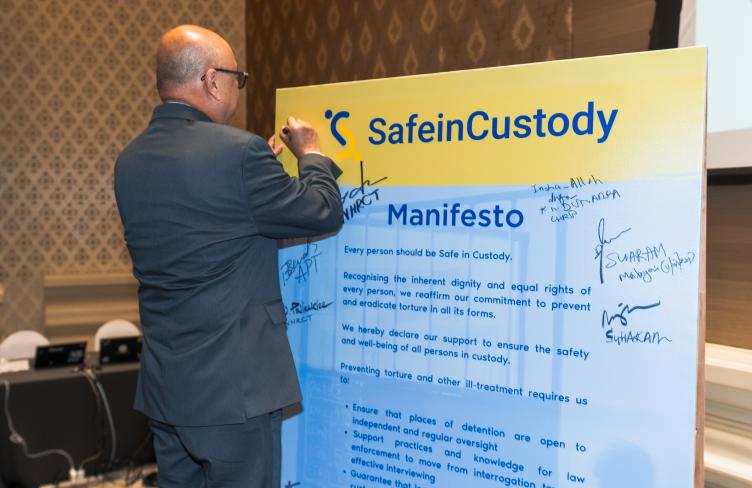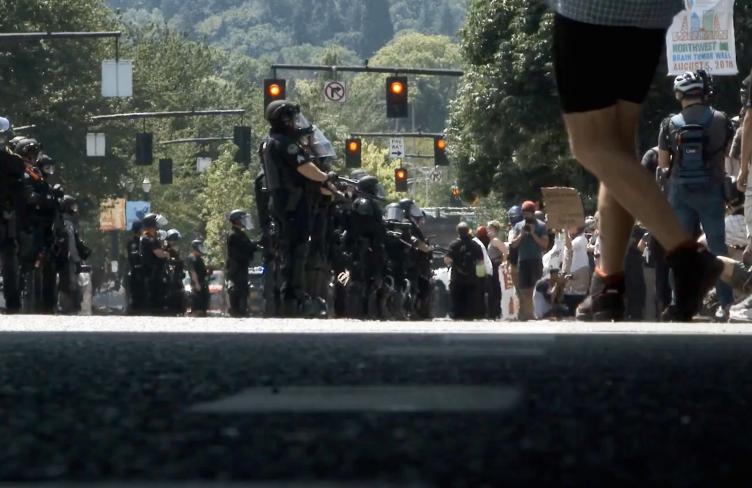
In partnership with 66 civil society organisations, the APT has lodged an urgent appeal with the Inter-American Commission on Human Rights to challenge a resolution allowing custody hearings in Brazil to be held by videoconference during the COVID-19 pandemic.
The urgent appeal, submitted on 19 January 2021, stressed that conducting custody hearings by videoconference severely restricts the ability of a magistrate to identify whether a person has experienced torture or violence on arrest or in the first hours of custody.
Preventing and responding to torture is a fundamental objective of custody hearings, the submission said.
A broad collation of organisations across Brazil – including Conectas, Prison Pastoral Care, ISER (Instituto de Estudos da Religião), IDDD (Instituto de Defesa do Direito de Defesa), the National Mechanism for the Prevention of Torture, and the Public Defenders' Offices of São Paulo and Rio de Janeiro – co-signed the urgent appeal.
On November 24th, 2020, Brazil’s National Council of Justice (NCJ) approved a resolution authorizing "the possibility of holding custody hearings by videoconference during the pandemic”. Previously, the CNJ itself had expressly forbidden the use of videoconferencing to hold custody hearings during COVID-19.
The co-signatories to the urgent appeal criticised the lack of transparency and inclusion in the NCJ’s process, as the resolution was drafted and submitted for voting without consultation or disclosure to civil society organisations and other interested parties.
Progress to secure fundamental rights in Brazil will be seriously compromised, the organisations warned.
"As custody hearings are an instrument to prevent and combat torture, which is mostly suffered by black people, they also function as a policy to promote racial equity" and to fight structural racism, they explained in the submission.
According to a survey conducted by the Public Defender's Office of Rio de Janeiro between 2017 and 2019, almost 80% of people arrested in flagrante delicto were black, while around 80% of violent incidents reported in custody hearings involved black people as victims.
The urgent appeal emphasised that it is feasible for courts to conduct face-to-face custody hearings during the pandemic. In fact, courts in nine states of Brazil have adopted sanitation protocols and adjusted court proceedings to enable the in-person presentation of a detainee before a judge, while ensuring the safety and health of everyone involved.
Some of the measures adopted include: holding hearings in more spacious plenary rooms to allow for physical distancing and better ventilation; requiring the use of masks and face shields by all persons involved, maintaining a two-metre distance between all persons at all times; and holding a preliminary interview with detainees to screen for symptoms of COVID-19 infection.
“These practices have already been being successfully implemented in nine states of Brazil, demonstrating that the conduct of face-to-face custody hearings is completely feasible,” the submission said.
“It shows it is possible to reconcile the health and security of all persons involved with the fundamental right of prisoners to be brought before a judicial authority within 24 hours of their arrest.”
The co-signatories also stressed that the moments immediately following a person’s arrest are the most crucial for preventing torture.
In 2017, the APT held a Symposium on Procedural Safeguards in the first hours of police custody, which brought together authorities and experts from around the world to discuss strategies to combat torture at this key moment.
One the key recommendations in the final report of the Symposium was the need for the physical presentation of a detainee before a judicial authority as a measure aimed at "removing a detainee from the control of the detaining authority at an early opportunity”.
“Videoconferencing does not enable custody hearings to achieve such an end, by keeping the person in the exclusive custody of the police officials, who would even be in charge of operating the camera and the videoconferencing equipment,” the organizations noted in the submission to the IACHR.
Read the urgent appeal in full (in Portuguese).


